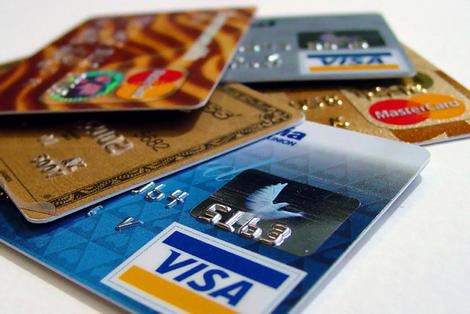By Alex Tanzi, Bloomberg News (via TNS).
Credit-card balances surpassed $1 trillion for the first time last quarter in data from the Federal Reserve Bank of New York, showing how even more widespread credit has become among American consumers as the U.S. economy recovered from the pandemic.
Balances increased by $45 billion, the most of all debt types, to $1.03 trillion in the second quarter, the New York Fed said in a report Tuesday. The percentage of Americans who are behind in their payments has also been on the rise. Delinquency rates have now returned to pre-Covid levels, but the two most recent quarters “appear to show some stabilization,” New York Fed economists wrote in a blog post.
“Despite the many headwinds American consumers have faced over the last year — higher interest rates, post-pandemic inflationary pressures, and the recent banking failures — there is little evidence of widespread financial distress for consumers,” the economists wrote in the post.
Credit card holders have, in aggregate, $3.6 trillion in additional credit availability.
Total U.S. household debt rose by 0.1% to a record $17.06 trillion last quarter, according to the New York Fed, whose data go back to 2003.
A separate report from the US Federal Reserve indicated that the interest-rate for credit cards reached a record high of 22.2% in May. More than 70 million new credit card accounts have been opened since the start of pandemic.
Auto-loan balances rose by $20 billion to $1.58 trillion, and exceeded student debt for the first time since 2009, the New York fed report shows. The volume of newly originated auto loans, which includes leases, was $179 billion.
Student-loan balances fell by $35 billion and stood at $1.57 trillion. Federal student loan payments remain suspended until October.
More than 70% of household debt is made up of mortgage balances. They were largely unchanged last quarter, at $12 trillion. Slow mortgage origination growth due to a sharp uptick in interest rates have kept depressed home-purchase applications.
___
©2023 Bloomberg L.P. Visit bloomberg.com. Distributed by Tribune Content Agency, LLC.
Thanks for reading CPA Practice Advisor!
Subscribe Already registered? Log In
Need more information? Read the FAQs
Tags: Accounting, Financial Planning, Payroll




